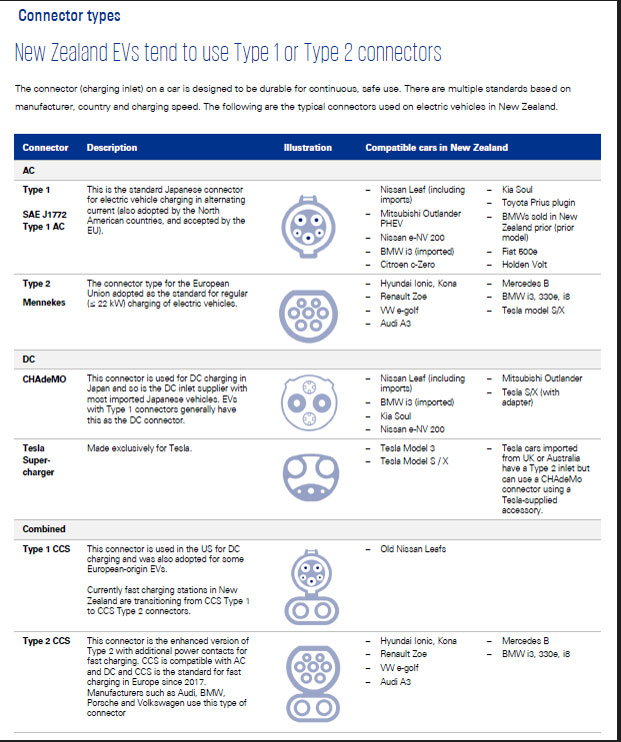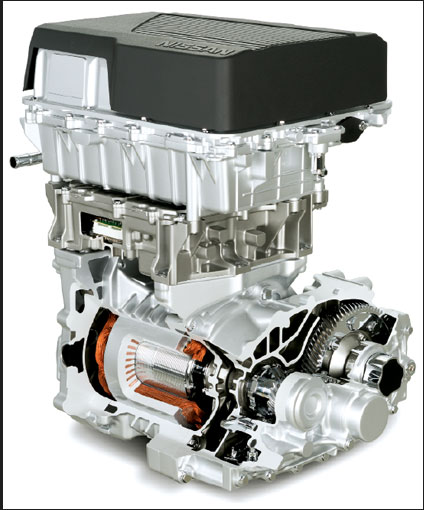Fuel Savings
Electric car owners could benefit from low running costs. Charging at home during off-peak hours is like buying petrol for around 40c/L, depending on your electricity retailer. And battery-electric motors have very few moving parts, requiring less maintenance or error. Electric vehicles are also exempt from road usage fees until March 31, 2024, saving owners an average of $600 a year.
https://www.eeca.govt.nz/insights/eeca-insights/electric-vehicles-and-aotearoa/
Servicing Savings
Electric cars offer a huge advantage over conventional petrol and diesel vehicles when it comes to running costs.
An electric car motor has two or three moving parts in comparison to the hundreds of components that make up an internal combustion engine. This means no oil changes, timing belts, sparkplugs, clutch, or gearbox. Because most electric cars can generate power under braking, they are also very gentle on brakes and tyres.
Most electric cars require check-ups rather than any true servicing
Zero Emissions
Because they run on an electric motor instead of a gasoline engine, plug-in vehicles produce zero emissions and are responsible for far less greenhouse gases and air pollutants over their lifetime. This is even after considering the production of the vehicle and the generation of the electricity required to fuel themCO2: 80% reduction in CO2 emissions for EVs when used in New Zealand, and 60% reduction in CO2 emissions across lifecycle.
Cumulative energy demand: EVs use 40% less energy.
Particulate matter emissions (e.g. exhaust emissions, raw material refining): EVs are better and have no tailpipe emissions.
Photochemical oxidation (related to the formation of smog): EVs 50% less photochemical matter
https://www.eeca.govt.nz/insights/eeca-insights/electric-vehicles-and-aotearoa/
Minimal Noise – A zippy Quiet Ride
Because electric car engines have few moving parts, they are very quiet. That would help reduce the traffic noise that annoys city dwellers.With no gears to work through, an EV is able to apply full power as soon as you touch the accelerator – and there’s no engine noise. They’re great hill climbers and regenerative braking means they recharge going downhill.
The Fun Factor
The Tesla Model S is rated the fastest accelerating production car and even lower cost options like a Nissan LEAF or Kia Soul EV are just as fun to drive due to the instant torque and efficient power of an electric motor. EVs also have a low centre of gravity, which improves handling, responsiveness to acceleration, and ride comfort safety-zone
Charging Convenience
Despite what you may have heard about charging times for EVs, there is a good chance that driving electric will save you time. EVs can easily be charged overnight in the comfort of your own home, saving you time (and $) that would be spent at the pump. Most drivers will likely only need to charge their car every 2-3 days since the range on many EVs is higher than the miles of your average commute.
There are a variety of ways to Charge:
AT HOME
Charging at home off-peak is the cheapest and cleanest option. You need off-street parking and access to a 3-pin power socket - or a dedicated charging unit. You’ll have to sort out who pays the bill – installing a smart charger can help divvy it up.
AT YOUR BUSINESS
Super convenient but there’s a lot to consider. If vehicles are parked up overnight, charging overnight is the cheapest and cleanest option – the charging units are much cheaper than fast chargers too. Install a smart charger or use the EVs charging controls to manage when the EV is recharged
ON THE ROAD
the public charging network is growing all the time. If chargers are near the routes you travel or your business premises you could use them as your main charging option, or mix and match with home or business charging. Record vehicle daily travel for a month and map journeys against public chargers to see how well they match.
https://charge.net.nz/





